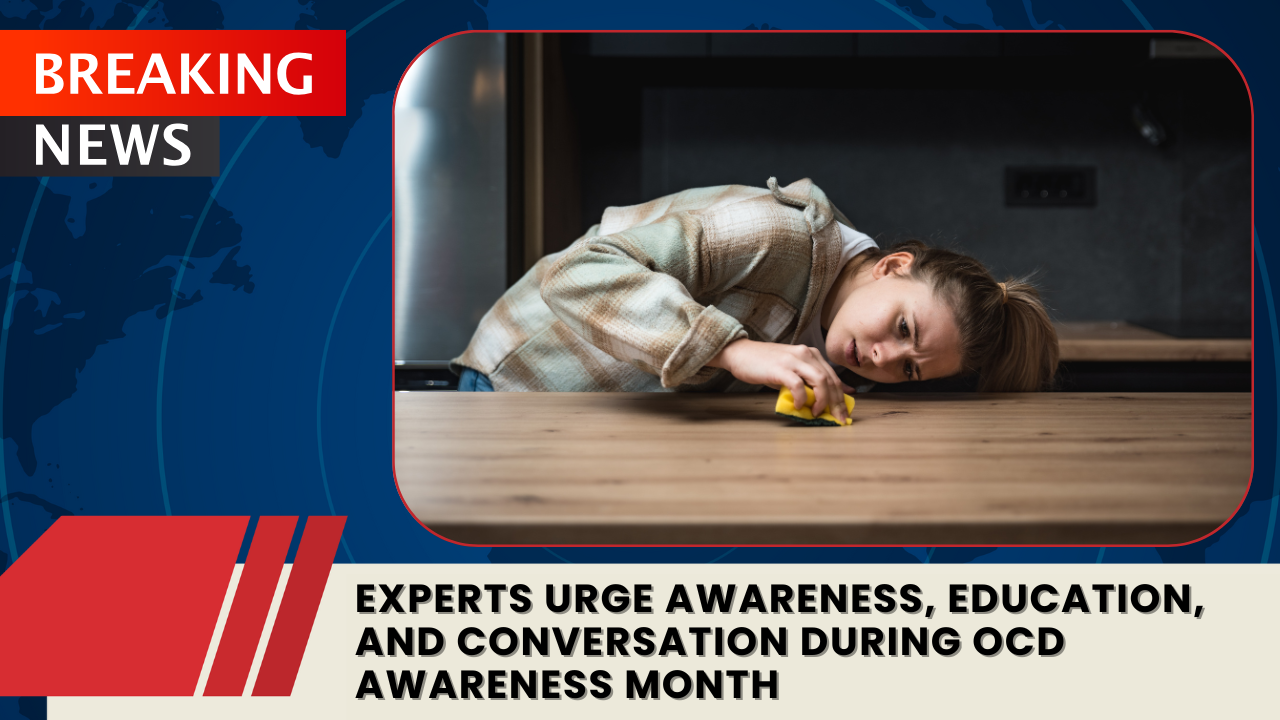SALT LAKE CITY — For Brian Coombs, founder of the OCD Foundation of Utah, obsessive-compulsive disorder isn’t just a clinical term — it’s been part of his life since childhood.
“I had the strong urge to run back into my home and check lights, outlets — anything that could be on,” Coombs recalled. “I felt like if I didn’t check, it was my responsibility to make sure the house wouldn’t burn down.”
His symptoms faded for a time during his teenage years, but returned forcefully in his 20s while serving an LDS mission. That’s when Coombs sought professional help and began therapy — an experience that not only helped him manage his condition but eventually led him to advocate for others facing similar struggles.
Now, during OCD Awareness Month, mental health professionals and advocates like Coombs are working to correct misconceptions and encourage open discussion about obsessive-compulsive disorder — a condition often misunderstood or minimized in everyday conversation.
Understanding OCD Beyond the Stereotypes
Many people associate OCD solely with extreme cleanliness or organization, but experts emphasize that it’s a much broader mental health condition characterized by intrusive thoughts and compulsive behaviors meant to relieve anxiety.
“Everyone thinks people with OCD are the cleanest people on the planet,” said Alex Johnson, 24, who has lived with OCD since childhood. “That’s not what it is. For some people, it’s about checking or counting — for others, it’s obsessive thoughts that never stop.”
Dr. Matthew B. Checketts, a clinical psychologist with University of Utah Health, explained that OCD often targets what individuals care about most — from relationships to safety to health.
“It could come in the form of intrusive thoughts that interrupt a person’s ability to function,” Checketts said. “The compulsion that follows provides temporary relief but reinforces the disorder over time.”
How OCD Works — and How to Break the Cycle
According to Coombs, OCD functions like a bully in the brain — demanding reassurance through rituals or repeated behaviors.
“You do the compulsion because it offers relief, but it actually maintains the disorder,” he said. “The brain learns that when I feel anxious or uncertain, I must perform this behavior — otherwise, something bad will happen.”
Treatment often focuses on exposure and response prevention therapy (ERP), a form of cognitive-behavioral therapy that helps patients tolerate anxiety without giving in to compulsions.
“You have to treat OCD like a bully,” Coombs explained. “If you ignore it or face it directly — saying, ‘Maybe I did touch that thing, oh well’ — it loses its power. The moment you stop feeding it, it starts to fade.”
Recognizing OCD in Children
Coombs emphasized that early intervention and education are key, especially for parents who may see signs of OCD in their children.
Children with OCD may repeatedly ask for reassurance (“Are you sure it’s safe?” or “Did I do it right?”) or perform the same behaviors over and over.
“It’s easy to give them an answer to calm them,” Coombs said. “But every time you give in, the brain learns that reassurance works — and the cycle continues. Education is essential.”
Experts recommend that parents seek help from licensed therapists who specialize in OCD and anxiety disorders if they notice persistent repetitive behaviors or distressing intrusive thoughts in their children.
Finding Strength in Community
Coombs said that while OCD has been one of his greatest challenges, it has also introduced him to an incredible network of people living with compassion and resilience.
“If the world were ending and I had to build a team, it would be my clients,” he said tearfully. “They’re the kind of people who would do anything for anyone. They feel so deeply.”
Through the OCD Foundation of Utah, Coombs and others continue to promote understanding, destigmatization, and access to treatment across the state.
Resources for OCD Awareness Month
- OCD Foundation of Utah: brian-coombs.squarespace.com
- Treat My OCD: treatmyocd.com
- International OCD Foundation: iocdf.org
These organizations offer information, therapy resources, and community support for individuals and families navigating obsessive-compulsive disorder.


